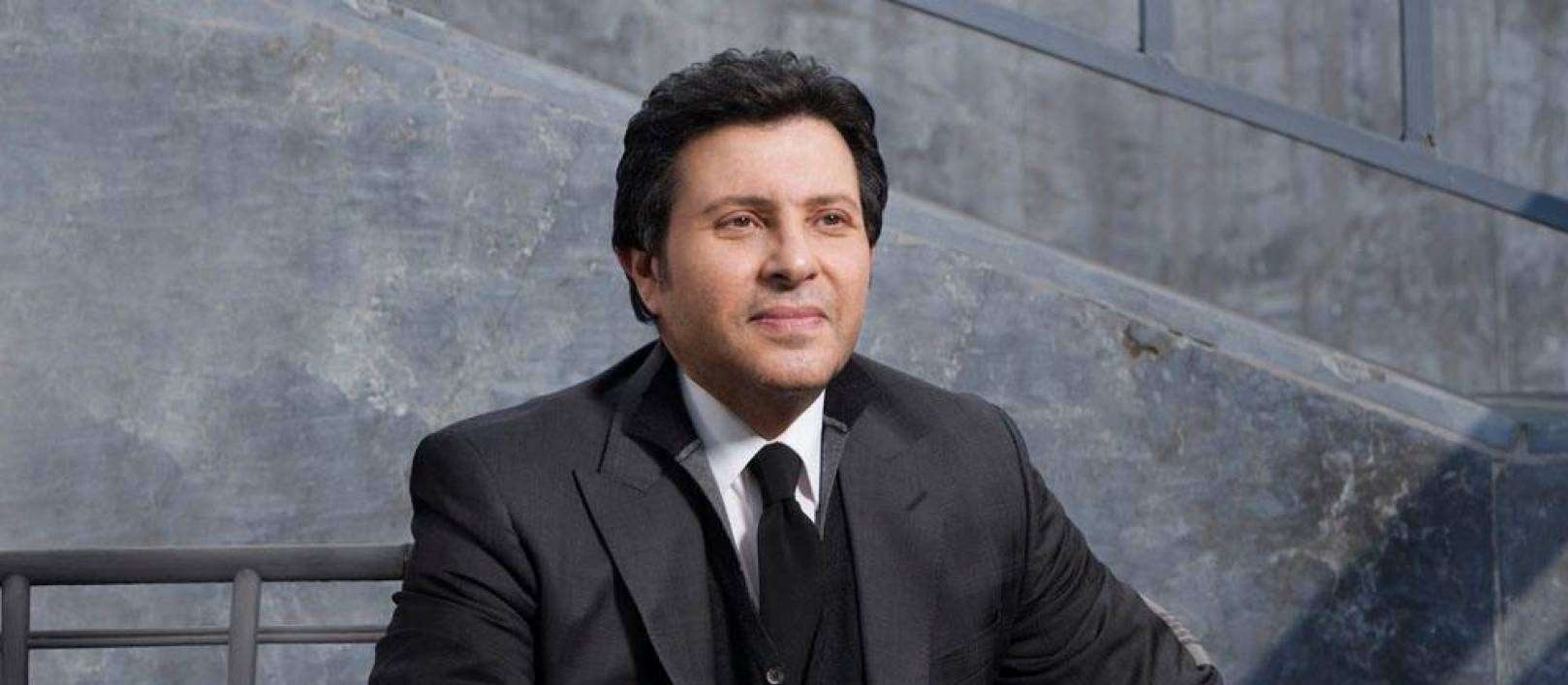“Prince of the Arab song” Hany Shaker will perform next Thursday (July 23) a virtual concert, becoming the latest Arab performer to take the virtual stage.
The concert, scheduled to live-stream on Shahid VIP at 10:00 PM KSA – 09:00 PM (Cairo local time), aims to uplift people spirits with music amid the coronavirus pandemic.
The concert is a part of Rotana’s chain concert, which is held weekly under, “mekameleen maakom”, and organized by Saudi Arabia’s General Authority for Entertainment.
https://twitter.com/RotanaMusic/status/1283875060781068290?s=20
Shaker was also keen to uplift people’s spirits with his new single “Hatady” (it will pass), which was released on his official “YouTube” channel, on June 18.
He embraced optimism and hope in the new track in the time of the Coronavirus, while reassuring that the crisis will end soon.
“Hatady” is by the lyrics of Ramy Amin and composed by Ahmed Barazili.
Coronavirus is making artists go virtual concerts
Musicians from around the globe have live-streamed and performed virtual concerts on social media platforms since the coronavirus pandemic outbreak. The pandemic pushed the music industry to experiment seriously with virtual concerts.
The virtual concerts are helping make the isolation worthwhile for people stuck at their home. Many artists are looking for ways to go beyond the living room concerts that defined the first few months of quarantine, as coronavirus continues to stall the comeback of live music.
The novel coronavirus, which was first reported in Wuhan, China, has infected more than one million people and killed over 88,505 worldwide. It also hit a number of celebrities and top political figures around the world.
On March 11, the World Health Organization (WHO) declared coronavirus a global pandemic as the new virus has rapidly spread to more than 800,000 people from Asia to the Middle East, Europe, and the United States.
However, it announced the novel COVID-19 is still “controllable”.

Transmission of viruses between humans happens when someone comes into contact with an infected person’s secretions, such as droplets in a cough.
Coronavirus can also be transmitted by coming into contact with something an infected person has touched and then touching your mouth, nose, or eyes.
It is known that older people appear to be more vulnerable to the effects of the emerging virus.
The virus caused complete paralysis in all activities and events with large gatherings worldwide due to concerns over the spread of the virus.
The global pandemic, like everyone around the globe, had infected many famous personalities who have gone public with their results, such as Canadian Prime Minister Justin Trudeau’s wife Sophie, and the Universal Music chairman and CEO Lucian Graingem who was admitted into the hospital to be treated for the virus.
People across the globe partake in self-isolation for 14 days as an effective precautionary measure to protect those around them and themselves from contracting COVID-19.
[caption id="attachment_131838" align="aligncenter" width="473"] Hany Shaker[/caption]
Hany Shaker[/caption]
It is worth mentioning that Shaker, also known as the Prince of the Arabic song, is an Egyptian singer and composer. The superstar has a repertoire consisting of more than 461 songs and 29 albums.
Shaker made his music debut when he performed “Sora” with Abd El Halim Hafez Choral Group, then he starred in film “Sayed Darwish” as the young Sayed Darwish.
He began his career at a very early age – learning the piano as a child when his mother took on the role of his agent.
Shaker started to study music at the prestigious Cairo Conservatoire in the early 1970s, after graduating from high school.
In 1972, he made his breakthrough while he was in the second year of college with song “Heloua ya Dounia” (It’s a Wonderful Life), written by Mohammed El Mougi.
The track showcased his talent, at that time where the biggest legends remained at their peak.
Several major influential singing legends such as Umm Kulthum, Farid al-Atrash, Mohammed Abdel Wahab, and Abdel Halim Hafez recognized his potential and supported him.
[caption id="attachment_113610" align="aligncenter" width="1618"] Hany Shaker[/caption]
Hany Shaker[/caption]
Shaker claims, till now, that he owes his greatest musical debt to Abdel Halim Hafez, a man who is very remarkable and who continues to exert a considerable huge influence on younger Egyptian and Arab musicians even after his death in 1977.
In 1974, he was invited to perform a concert in Lebanon, which turned out to be a huge success, and ever since he remained extremely popular among the Lebanese.
He is known for singing “Siboni Aheb” (Let me love), “Kisma w’nasib” (Destiny and fate), and one of his most popular “Kida Bardo Ya Amar” (It’s not fair, oh Moon”).
Shaker presented in the 70s two famous plays “Cinderella” and “Egypt” and three romantic movies “When love sings”, “We live for love” and “I love this and want that”.












